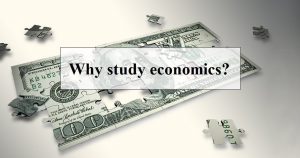In a world that continually evolves and becomes more interconnected, understanding the forces that shape our decisions, societies, and economies is invaluable. Economics, as a discipline, provides a framework for analyzing choices, evaluating trade-offs, and understanding resource allocation. Investing in learning economics is not just an academic pursuit but also a life-transforming decision with benefits that permeate professional, personal, and societal levels.

Understanding Economics: Why It Matters
Economics, at its core, focuses on the study of scarcity and the allocation of resources. It examines how individuals, businesses, and governments make decisions and how those decisions influence markets and societies. By learning economics, one gains insight into the mechanisms behind critical issues such as inflation, unemployment, taxation, trade, and public policies.
The importance of economics lies in its universality—it impacts every aspect of life, from personal finance and business strategies to global trade and policy making. As Thomas Sowell puts it, “Economics is the study of cause-and-effect relationships in the economy,” which makes it a vital tool for understanding and addressing some of the world’s most pressing problems.
Key Benefits of Learning Economics
- Develops Crucial Analytical and Problem-Solving Skills
Economics offers a unique problem-solving toolkit. It teaches individuals to think critically about resource allocation, interpret data, and predict outcomes. For example, understanding concepts like opportunity cost allows individuals to make better decisions by evaluating the trade-offs associated with each choice
These analytical skills are highly transferable, making economics a valuable foundation for careers in multiple industries, including finance, public policy, consulting, and more.
- Enhances Financial Literacy and Decision-Making
Studying economics equips individuals with the knowledge to make informed financial decisions in personal and professional contexts. Economic principles, such as supply and demand, consumer behavior, and market equilibrium, help individuals understand how markets function. This knowledge can be applied to personal budgeting, investment strategies, or even understanding broader financial trends, such as inflation or interest rate fluctuations.
- Broadens Career Prospects
An economics degree opens doors to diverse career opportunities. Economics graduates are highly sought after in fields such as data analysis, financial planning, risk management, public administration, and international relations. According to the U.S. Bureau of Labor Statistics, employment opportunities for economists are expected to grow significantly, demonstrating the increasing demand for professionals with economic expertise.
- Provides a Global Perspective
Economics fosters a deeper understanding of global markets and international relations. In an interconnected world, this perspective is invaluable for analyzing global trade, cross-border financial flows, and the economic drivers behind international cooperation and conflict. This global lens, which is a key focus in IB Economics Tuition classes, is particularly beneficial for those pursuing careers in multinational organizations or international policymaking.
- Serves as a Gateway to Advanced Studies
Economics provides a strong foundation for advanced education. It is an excellent precursor to graduate programs in business (MBA), law, and public policy. Notably, economics majors consistently score high on standardized tests like the LSAT and GMAT, making it a preferred choice for individuals aiming for top-tier graduate programs.
- Offers High Earning Potential
One of the most tangible benefits of studying economics is the high earning potential. Economics graduates often enjoy some of the highest starting salaries among peers across various disciplines. Moreover, their lifetime earnings tend to outpace those of many other fields, driven by the versatility and demand for their skill-sets.
- Empowers Societal Impact
Economists play a vital role in shaping public policies that address societal challenges such as inequality, poverty, and sustainability. By applying economic theories to real-world issues, they contribute to the development of policies that improve living standards, ensure efficient resource allocation, and promote social and economic progress.
The Long-Term Return on Investment
Economics is not confined to academic theories or corporate boardrooms. Its principles are embedded in daily decisions, from choosing between brands at the grocery store to planning for retirement. By understanding concepts like marginal utility, budgeting, and market forces, individuals can approach everyday decisions more rationally and effectively. Even minor economic concepts like “willingness to pay” or “opportunity cost” can radically alter how we evaluate choices, leading to smarter financial and personal decisions.
The value of learning economics extends beyond immediate benefits. As the global economy evolves—shaped by technological advances, geopolitical shifts, and environmental challenges—the ability to navigate uncertainty becomes increasingly critical. Economics provides the flexibility and adaptability to thrive in such an unpredictable environment. For instance, economic knowledge helps professionals transition across industries, adapt to new technologies, and leverage emerging opportunities.
Moreover, the lifetime learning and earning prospects associated with economics make it a “smart investment.” Organizations consistently rank problem-solving, critical thinking, and analytical skills—the hallmarks of economic training—among the most desirable attributes in employees.
How to Begin Learning Economics
Investing in economic education does not necessarily require formal academic enrollment. While pursuing a degree offers the most comprehensive education, there are myriad ways to learn:
– Enroll in Online Courses: Platforms like Coursera, edX, and Harvard Online offer accessible economics courses covering topics from microeconomics to behavioral economics.
– Join highly regarded Economics Tuition programmes such as by The Economics Tutor
– Read Books by Renowned Economists: Books like “Freakonomics” by Steven Levitt and Stephen Dubner or “The Wealth of Nations” by Adam Smith provide engaging insights into economic concepts.
– Stay Informed: Following economic news, reports, and journals helps build an understanding of current economic trends.
– Engage in Practical Learning: Applying economic principles to real-life scenarios, such as budgeting or investing, reinforces theoretical knowledge.
The Smartest Investment
The true power of economics lies in its ability to change perspectives. It allows individuals to think beyond immediate concerns and consider long-term outcomes, systemic impacts, and broader societal effects. By investing time and effort into learning economics, individuals not only enhance their personal and professional lives but also contribute to the world’s progress.
In today’s fast-paced and interconnected world, where decisions can ripple across markets and societies, economic literacy is no longer optional—it is essential. Whether you aspire to excel in your career, make better personal financial choices, or understand the complexities of global challenges, economics is undeniably the smartest investment you can make.
